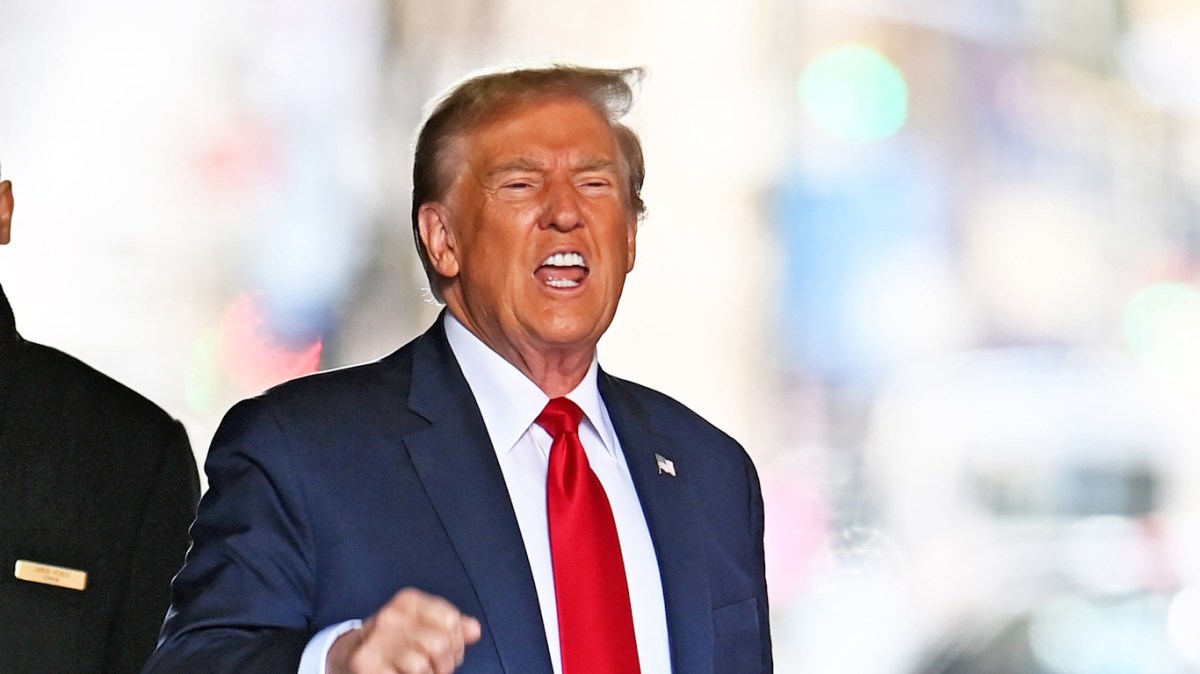With former president Donald J. Trump, his organization, and his (present and former) associates having frequently found themselves in legal hot water, we may find it easy to forget some of the ins and outs of why he’s currently on trial in Manhattan.
Furthermore, given the fact that the former president acts as though he’s still part of a reality show and that the cameras love him, the waters have become murky, and we find ourselves wondering, “How did we even get here?”
That said, this trial is unprecedented for a couple of reasons. First, Trump has never before sat on trial facing criminal charges; second, this is the first time in U.S. history that a former president has been in this exact situation.
So, wonder no more. Here are the main points you need to know about the ongoing hush money case.
What is Trump alleged to have done?
Trump is facing a total of 48 felony counts. These pertain to the falsification of business documents, including multiple checks and invoices, to hide the former president’s alleged sexual liaison with adult film actress Stormy Daniels – who has routinely received a barrage of violent threats as a result of going public. Daniels said in a Peacock documentary that Trump told her she reminded him of his daughter, Ivanka. That was, she claims, before she saw any red flags and things turned from civil to ugly.
Daniels was reportedly paid 130 thousand dollars to sign a confidentiality agreement and keep quiet about the extramarital affair. Trump has denied it ever happened or even knowing about the payment made by his then-attorney, Michael Cohen, who has already been indicted and pled guilty. The main illegality, prosecutors have argued, is that the whole scheme was handled in a manner that essentially amounts to fraud. Since his indictment, Cohen has been vocal about how the payments were made with the knowledge of the former president and that these were intended to influence the campaign, contradicting Trump’s account.
Usually, falsifying business records is usually a misdemeanor, but to make it a felony in this case, the prosecution must prove the former president had the intention of committing another crime when he falsified the documents. Other payoffs Trump and his associates allegedly made were also featured in the prosecution’s statement of facts, but it is still unclear whether these will surface during trial. These payments, prosecutors have said, were made to appear as donations to the Trump campaign. (via The New York Times).
The time of the alleged offenses is 2016, in the final days of his presidential campaign against Democratic nominee Hillary Clinton for the position of the 45th president of the United States. In other words, if this were true, Trump could have had a lot to lose, had these allegations become public then.
What now?
The trial was delayed until April 15 and, at the time of this writing (April 16,2024) it seems that, after many issues, we’re finally close to getting a full official jury panel.
For about six weeks, Trump has no choice but to be in New York to attend the trial proceedings and watch as witnesses like Stormy Daniels, and his former attorney Michael Cohen – both of whom he has slandered online – testify against him. Of course, the former president has been more than vocal on his Truth Social account about how this trial is an “Election Interference!” as well as a “RIGGED, UNCONSTITUTIONAL TRIAL!”
Besides having verbally attacked the witnesses, Trump has also complained about the judge, Judge Juan Merchan, calling him a “Trump Hating Judge”, and also fired off at the District Attorney, Alvin L. Bragg. Trump has also declared, outside the courtroom, that “every legal scholar said this trial is a disgrace.”
Out of the 4 criminal cases Trump could have against him, this could be the only one to take place prior to November 5, 2024.
The court will be in session every weekday except for Wednesdays. Even if we do not see it with our own two eyes, we will get to find out how many days out of the nearly two months of trial Trump will manage to remain awake. It will not be televised, but select reporters from a few outlets are present to routinely report on the smallest updates, and everyone who’s part of the U.S. democracy ought to be keeping track.
